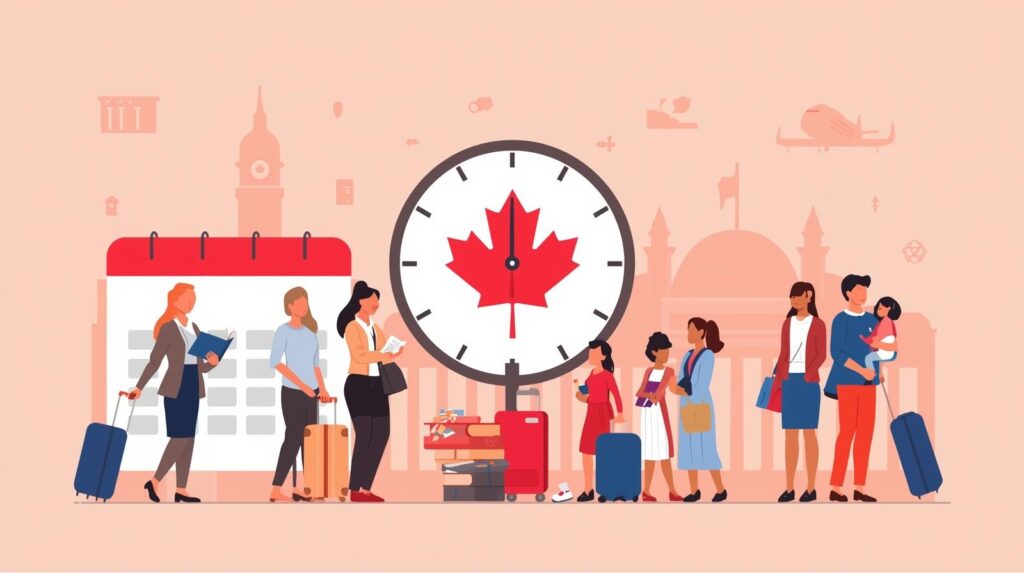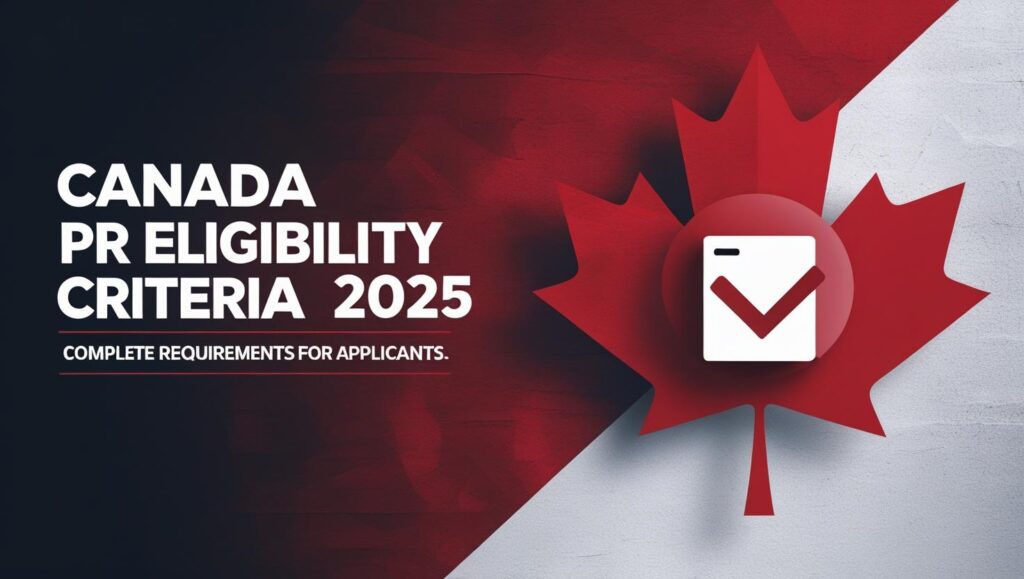Waiting for your Canadian immigration or visa application to be processed can be stressful. The IRCC processing times (Immigration, Refugees and Citizenship Canada) determine how long it takes before you receive a decision. But if you’ve ever tried to check these times on the government website, you probably noticed they can be confusing, always changing, and not always clear on what affects your own case.
That’s why I created this guide. In this article, you’ll find:
-
A step-by-step breakdown of how to check IRCC processing times.
-
What the official times really mean (and what they don’t).
-
Common reasons applications take longer.
-
Tips to avoid unnecessary delays.
-
Frequently asked questions people search for online.
By the end, you’ll know exactly how IRCC timelines work in 2025—and what you can do to speed things up.
What Are IRCC Processing Times?
IRCC processing times are the average length of time it takes the Canadian government to finalize immigration and visa applications. These times are updated weekly on the official IRCC website.
👉 Official tool: IRCC Processing Times Checker
The number shown is an estimate, not a guarantee. For example, if the site says “12 months” for a spousal sponsorship application, it means most applications are finalized within that period—but some may be quicker, while others take longer.
How to Check IRCC Processing Times (Step by Step)
Here’s the simplest way to check processing times online:
-
Go to the IRCC website → Use the official processing time tool.
-
Select your application type → Examples:
-
Express Entry
-
Visitor visa
-
Work permit
-
Study permit
-
Family sponsorship
-
Citizenship
-
-
Choose where you’re applying from → Inside Canada or outside Canada.
-
View the result → The system will show the average time in weeks or months.
💡 Pro Tip: Bookmark the page and check every few weeks. IRCC updates regularly based on workload and new applications.
Typical IRCC Processing Times in 2025
Here are the average processing times for common applications (based on IRCC’s 2025 updates):
| Application Type | Average Processing Time (2025) |
|---|---|
| Express Entry (FSW, CEC, FST) | 6 – 9 months |
| Provincial Nominee Program (PNP) | 12 – 18 months |
| Visitor Visa | 20 – 60 days |
| Work Permit | 2 – 5 months |
| Study Permit (outside Canada) | 2 – 4 months |
| Spousal Sponsorship | 10 – 12 months |
| Parents & Grandparents (PGP) | 20 – 24 months |
| Canadian Citizenship | 12 – 18 months |
| PR Card Renewal | 2 – 4 months |
(Note: These are averages—always double-check the official IRCC website for the latest numbers.)
What Affects IRCC Processing Times?
Not every case is the same. Here are the main factors:
-
Application volume → More applications = longer wait.
-
Completeness of your application → Missing documents = delays.
-
Biometrics & medical exams → Must be completed before approval.
-
Background/security checks → Some take longer depending on country.
-
Program demand → Popular streams like Express Entry or Sponsorship may face backlogs.
-
IRCC staffing levels → Seasonal or policy changes affect speed.
Common Mistakes That Delay Processing
Many applicants unknowingly slow down their own application. Avoid these:
-
Submitting incomplete forms or forgetting signatures.
-
Uploading low-quality scans of documents.
-
Missing the biometrics appointment deadline.
-
Not responding to IRCC additional document requests quickly.
-
Using an outdated application form instead of the latest version.
✅ Pro Tip: Double-check everything before submission. If IRCC asks for additional information, reply as soon as possible.
How to Reduce Your IRCC Processing Time
While you can’t control IRCC’s workload, you can take steps to make your case move faster:
-
Submit a complete application → Use IRCC’s document checklist.
-
Apply online → Digital applications are processed faster than paper.
-
Pay all fees upfront → Missing payments causes delays.
-
Track your application online → Use your IRCC account for updates.
-
Hire a regulated immigration consultant/lawyer if your case is complex.
What to Do If Your Application Is Taking Too Long
If your case is outside normal processing times:
-
Check your online IRCC account for updates or messages.
-
Submit a webform inquiry to IRCC.
-
Contact your local MP (Members of Parliament can sometimes escalate).
-
Order GCMS notes to see detailed file history.
💡 Reminder: Only contact IRCC if your application has passed the published timeline. Reaching out too early won’t help.
Frequently Asked Questions (FAQ) About IRCC Processing Times
1. How accurate are IRCC processing times?
They’re averages. 80% of applications are processed within the time shown, but some are faster or slower.
2. Do online applications get processed faster?
Yes. Online applications are prioritized over paper-based ones.
3. Can I speed up my processing time?
You can’t “skip the line,” but you can avoid delays by submitting a complete, accurate application.
4. Why is my friend’s application faster than mine?
Each case is unique. Factors like country of residence, background checks, and completeness affect speed.
5. What happens if IRCC takes longer than posted?
You can raise a webform inquiry, contact your MP, or request GCMS notes to see what’s happening with your file.
Final Thoughts
IRCC processing times can feel overwhelming—but they don’t have to be a mystery. By understanding how the system works, checking the official tool regularly, and submitting a strong, complete application, you can reduce stress and avoid unnecessary delays.




Pingback: What is the Best Place to Live and Work in Canada? Canadian Life Hub